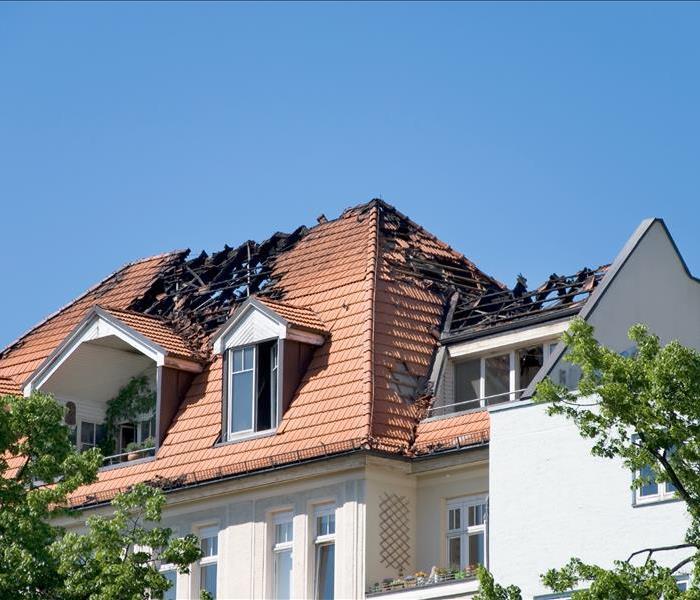Fire Damage Repair Southern Connecticut
9/16/2021 (Permalink)
When you think about house fires, it’s no surprise that you likely picture a house engulfed in a tower of flame or a hallway or interior with burning walls. We regularly see fires depicted as clean-burning in movies and TV shows, because frankly we like to see the actors’ faces.
But in reality, there’s a much more likely chance that a house fire would leave you unable to see much at all, because the halls and interior in a full-fledged fire would be filled with smoke.
Smoke is the biggest threat in the 1 million+ home fires that occur in the United States each year, and smoke inhalation is the leading cause of fire deaths and injuries.
What Happens When You Inhale Smoke
You’d immediately assume that breathing in smoke might make you cough, and it’s not hard to imagine that smoke filling your lungs might be a bad thing overall. But the reason smoke is so dangerous in house fires is partially about smoke entering your lungs and partially about oxygen leaving your lungs and brain.
In order for a fire to grow, it requires oxygen. (This is why smothering a fire is such an effective suppression method.) As a fire grows inside the home, it consumes the oxygen present in the air, leaving less and less for occupants to breathe in.
When oxygen levels drop, the body is unable to function properly. Even a drop of 4% can cause impaired coordination and dizziness, making cognitive processes more difficult in an already stressful moment. Further loss of oxygen causes dizziness, unconsciousness, and respiratory or cardiac arrest.
The inhalation of smoke also means inhaling small particles, plus toxic gases such as carbon monoxide and hydrogen cyanide.
How to Avoid Smoke Inhalation
The safest way to escape smoke is to stay low to the ground. Smoke rises, so the cleanest air is down low.
Cover your mouth with a wet cloth if you can grab one, and crawl to the nearest exit. Don’t linger inside, and don’t reenter once you’ve exited.
If a fire tragedy should strike your home, know that SERVPRO is here to help. Contact us anytime for 24-hour emergency assistance.





 24/7 Emergency Service
24/7 Emergency Service
